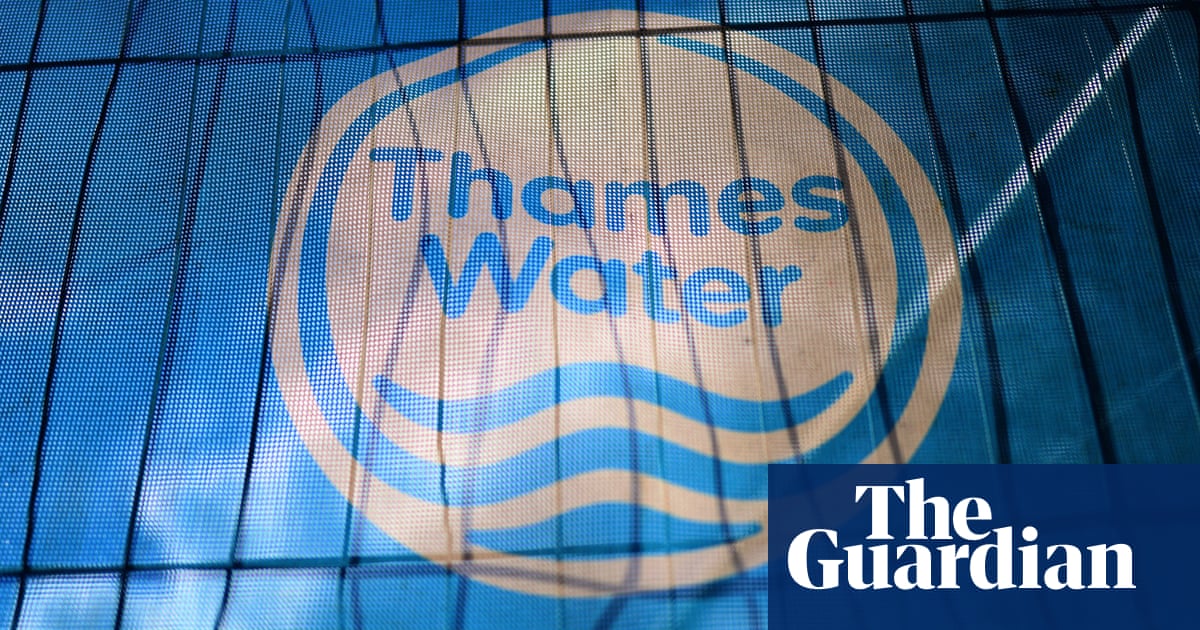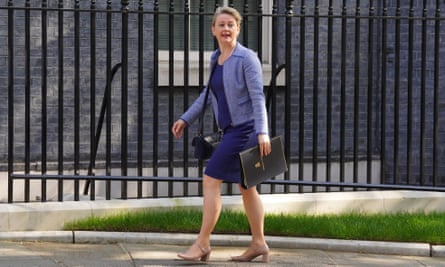
Whitehall officials have been at loggerheads over the fate of Thames Water since the Treasury told the environment department that it would have to meet the cost of a multibillion pound temporary nationalisation.
Britain’s biggest water company recently came within days of running out of money. Thames is in a desperate race to find a buyer willing to inject cash, with the US private equity firm KKR in pole position.
However, should that takeover fail, the heavily indebted utility could collapse into state hands via the special administration regime (SAR).
Existing budgets at the Department for the Environment, Food and Rural Affairs, which insiders describe as already stretched, would have to be used to meet the burden of keeping Thames Water afloat if bids to save the company fail, according to sources.
That pressure to find a private sector solution rather than a state rescue is helping to force through KKR’s bid uncontested, with potential long-term challenges and associated costs not being given serious consideration, sources close the bid and Whitehall insiders said.
Some estimates have suggested temporary nationalisation could cost as much as £4bn over 18 months, a figure used by senior Treasury officials in discussions with counterparts at Defra, sources said. With Defra’s annual budget for last year totalling £4.6bn, the costs could be crippling.
Departments have spent months waiting to hear what the chancellor’s spending review will mean for their budgets. This is to be revealed by Rachel Reeves on 11 June. She unveiled big cuts to overall Whitehall spending at her spring statement.
The Thames issue is causing what one source termed a “binary choice” for regulators and central government: higher customer bills but a recapitalised utility versus what another called “potentially catastrophic cuts” to Defra’s budget. This need not be the case if the Treasury were to take a different approach, several sources said.
One suggested threats to Defra’s budget were an example of “scare tactics” to shut down discussion about other options for Thames.
The cost of nationalising Thames, which serves almost 16 million customers in London and the Thames valley, has been hotly debated.
The company is wrestling with a mountain of more than £20bn of debt, amid growing pressure to invest in its ailing assets and set aside sums for anticipated future regulatory fines and costs. The debt levels are so great that some bidders for Thames suggested it would be better if it were to enter temporary nationalisation, in order to force creditors to accept steeper losses and make the company more viable in the long term.
A consultancy, Teneo, provided estimates of what a temporary nationalisation could cost the government as part of a recent court case. It claimed it could be as high as £3.4bn to £4.1bn over an 18-month period.
The author of Teneo’s report, Matthew Cowlishaw, worked on the temporary nationalisation of the energy company Bulb. Teneo suggested that if Thames were nationalised, customers would be more likely to refuse to pay their bills, the government would demand an interest rate of nearly 10% on any loans to the company, and staff wages would have to go up by about 20% to stop them leaving.
after newsletter promotion
However, some economists and industry experts question whether there would be any long-term cost to the government at all in a temporary nationalisation, with many noting the example of Bulb.
The energy company was temporarily nationalised via the SAR route in 2021 before being taken on by rival Octopus, which eventually repaid £3bn to the Treasury. That repayment meant the government recouped almost all of its costs from the emergency measure.
If Thames was temporarily renationalised, the government would become first in the pecking order to recoup its money and could reclaim all the funds spent on financing it when the company was eventually sold, with other lenders forced to suffer steep losses on their loans.
Even if a private market solution were to be favoured, Whitehall sources added, they were highly critical of the lack of transparency over the KKR bid. This disquiet was echoed by several sources at regulators, too.
A spokesperson for Defra said: “The company [Thames Water] remains stable and the government is closely monitoring the situation. It would be inappropriate to comment further on the financial matters of a private company.”
Source: theguardian.com

















